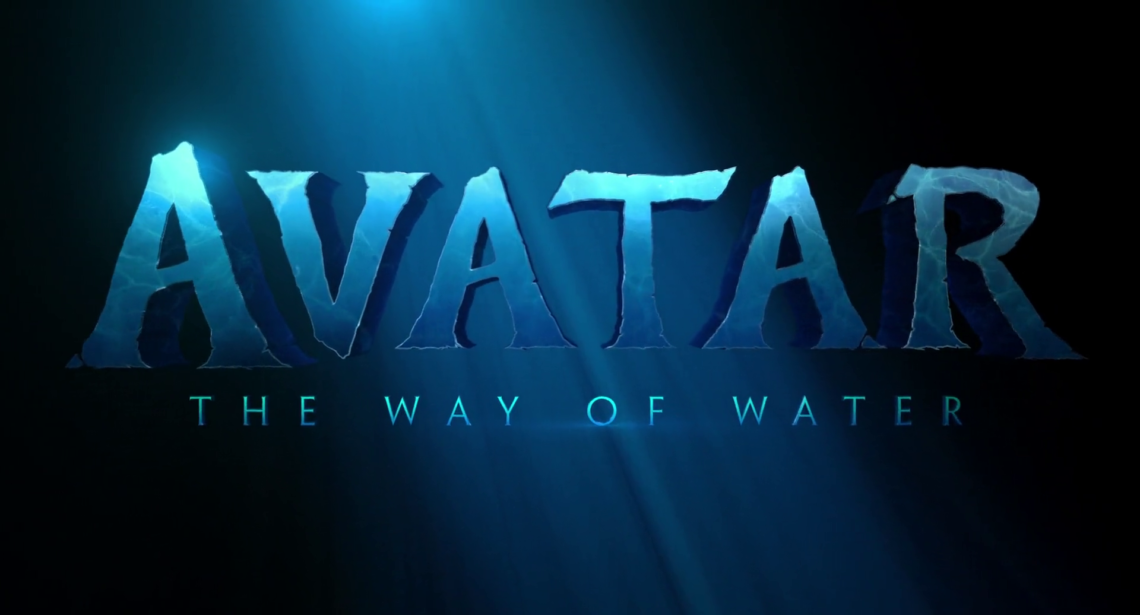
#562 – Avatar: The Way of Water (2022)
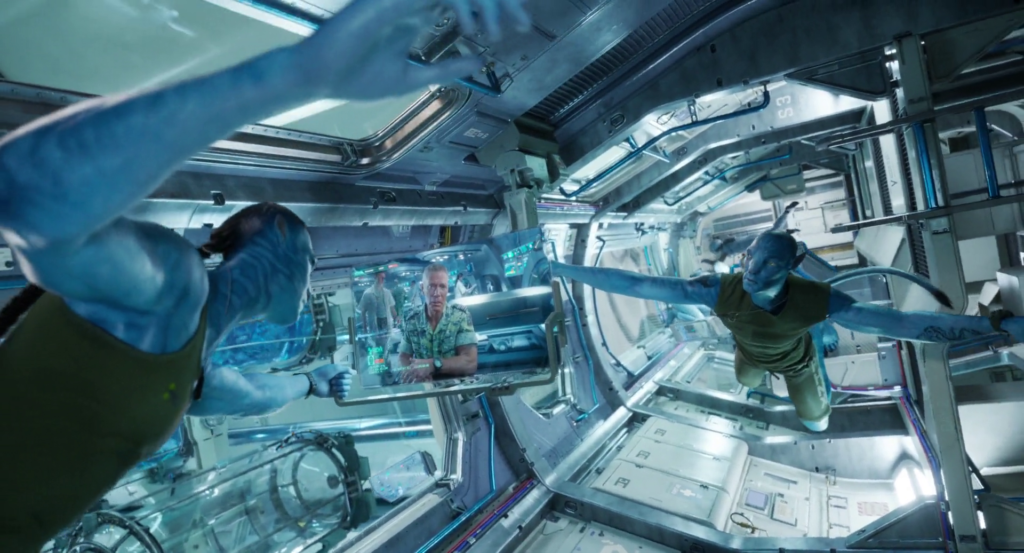
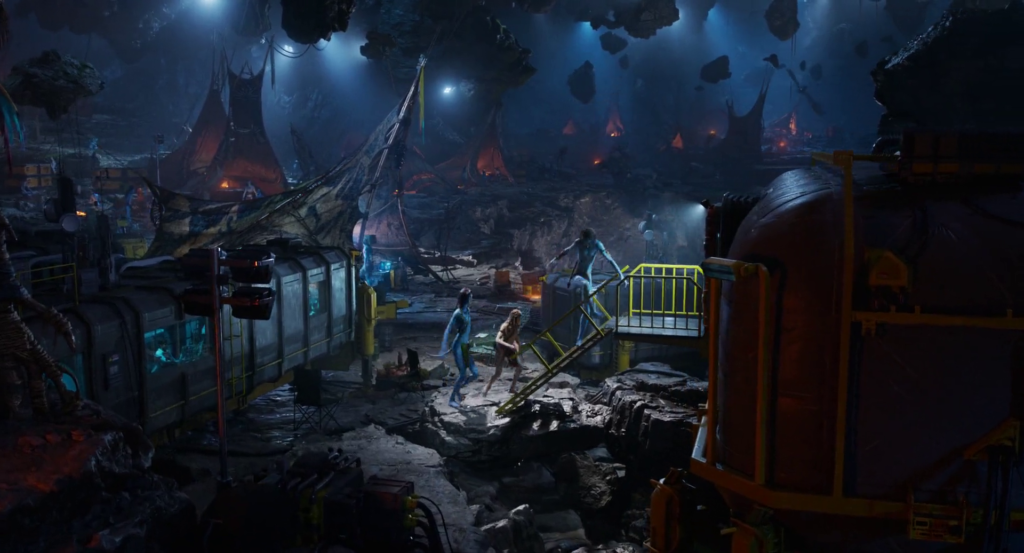
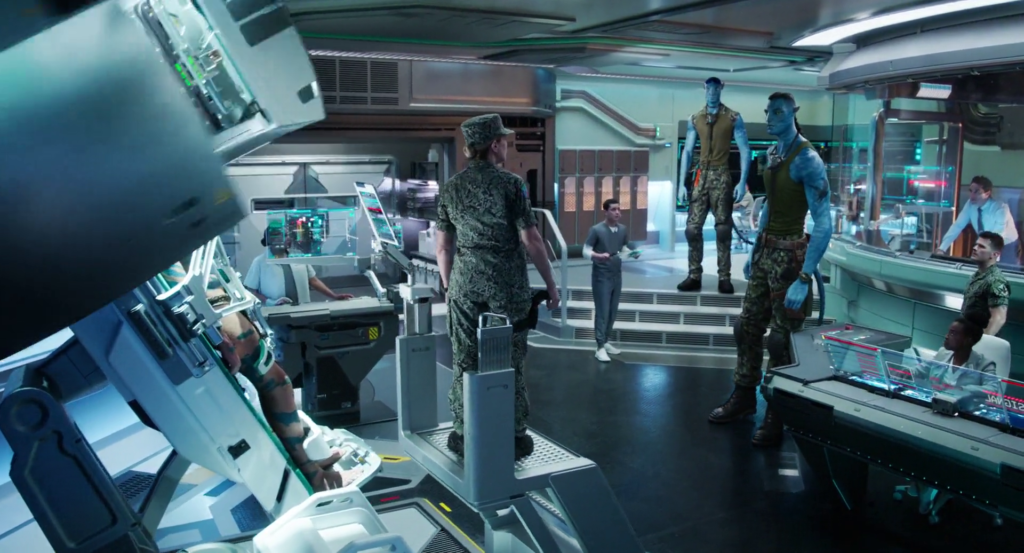
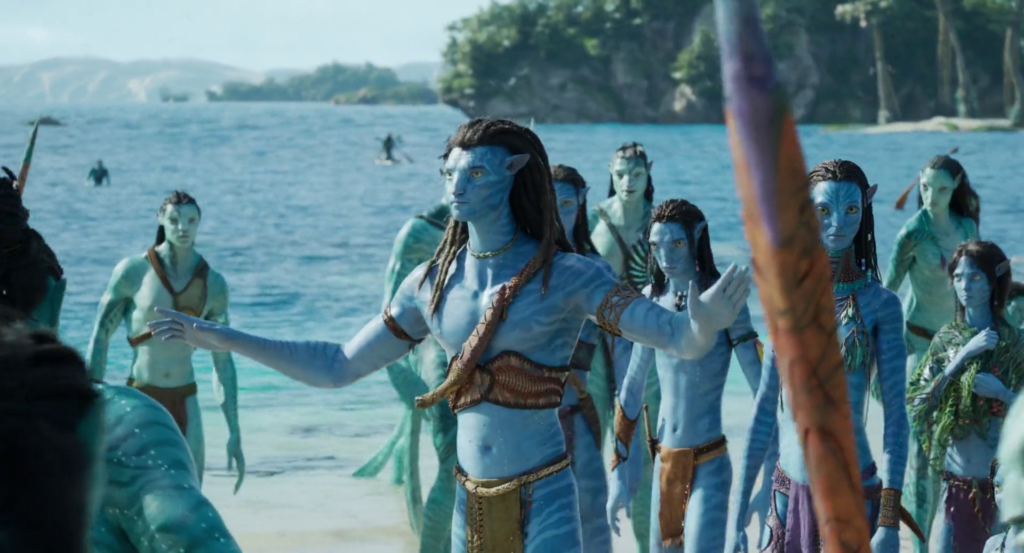
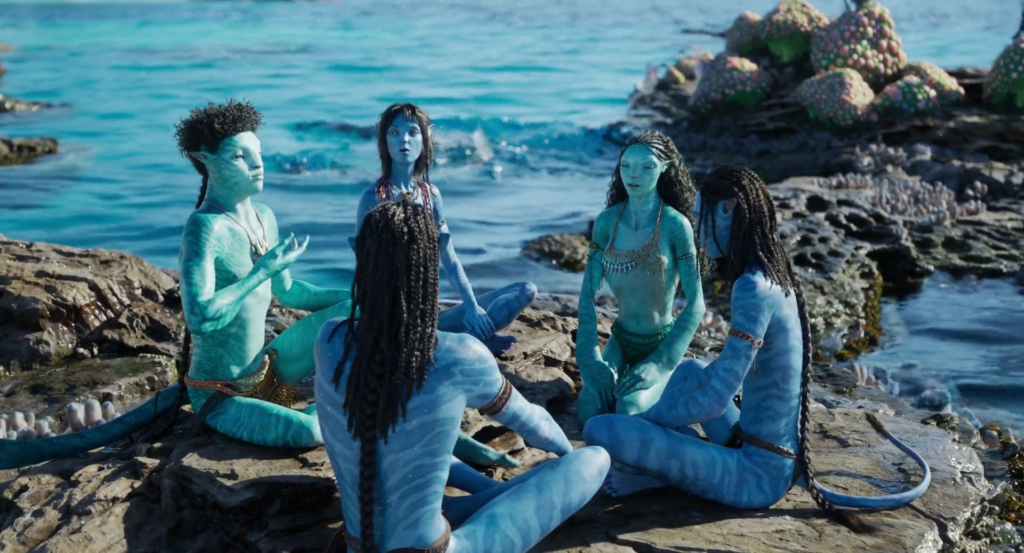
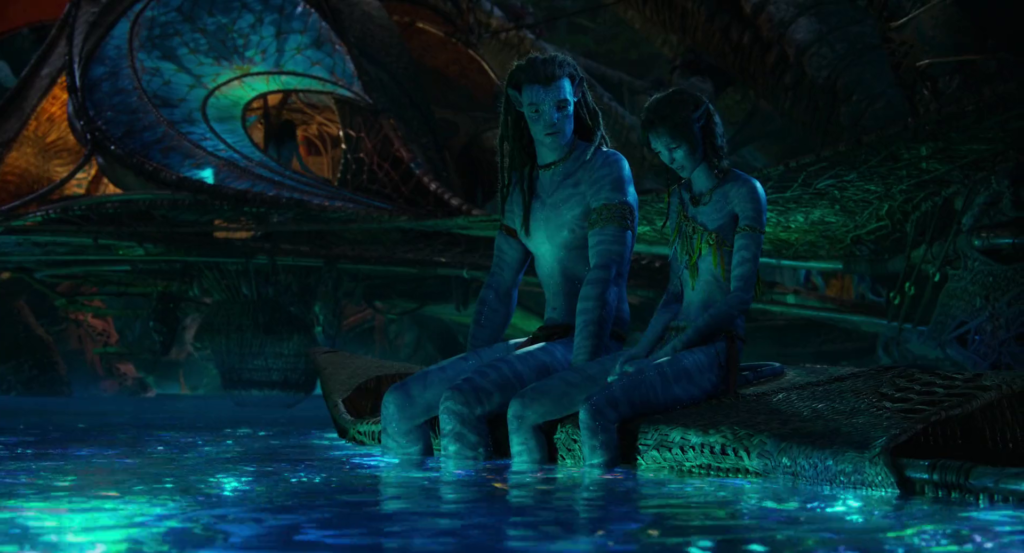
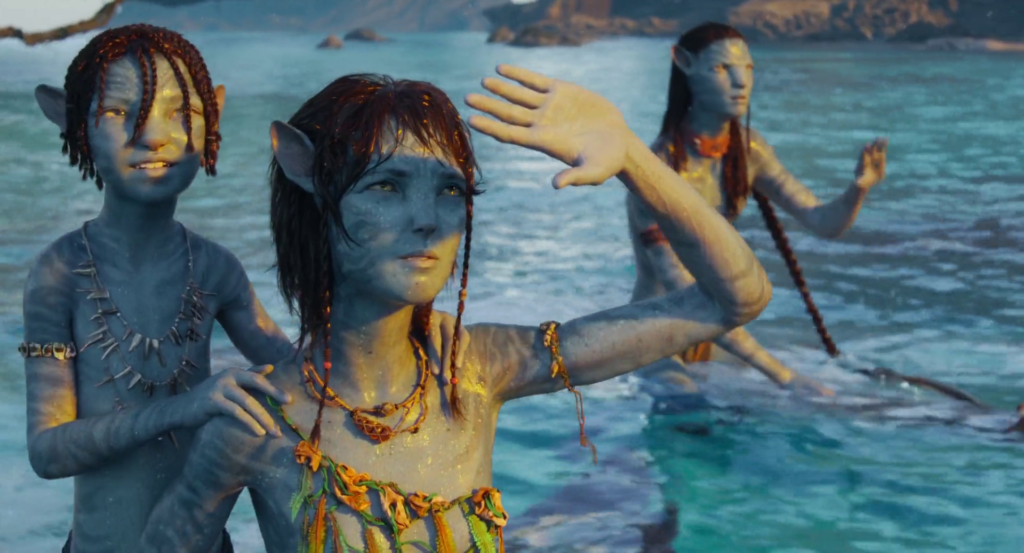
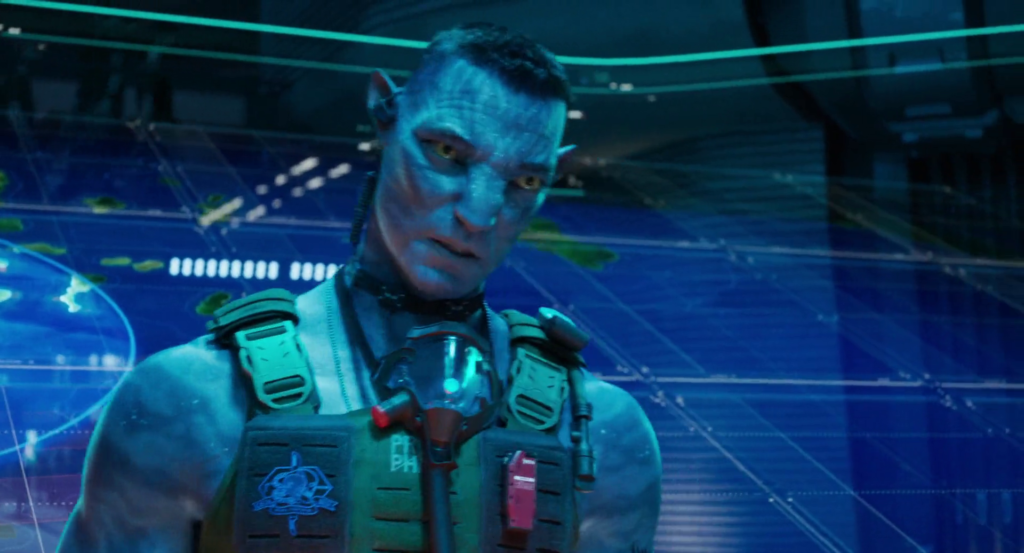
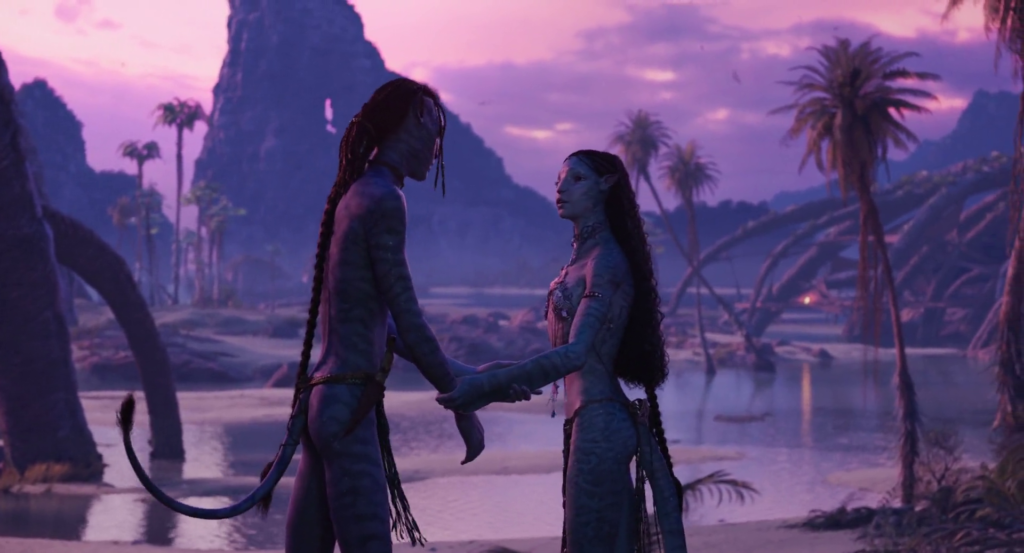
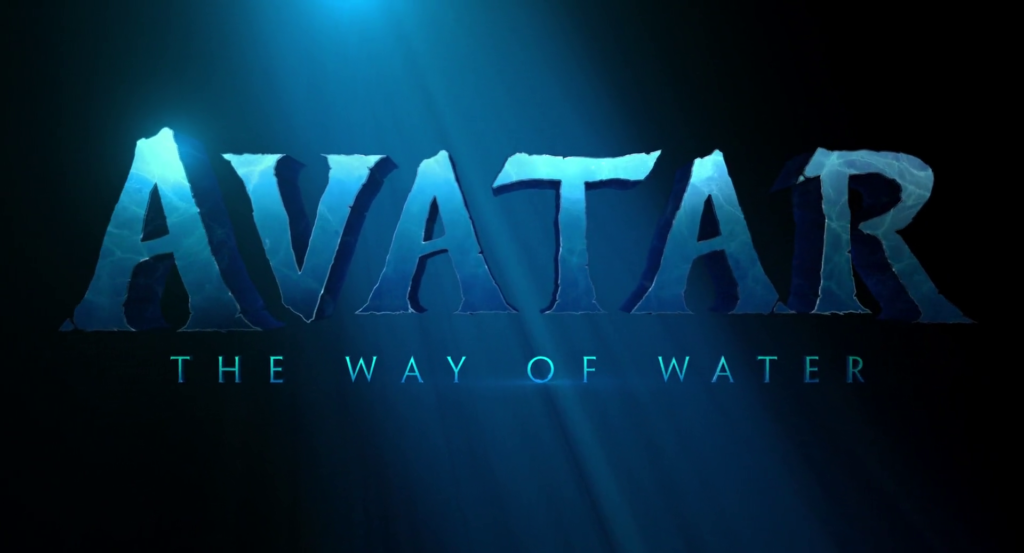
Avatar: The Way of Water (2022)
Film review #562
Director: James Cameron
SYNOPSIS: Humans have returned to the planet Pandora in an attempt to colonise the planet in the face of a dying earth. The native Na’vi race attempt to fight back, led by Jake Sully, but seeing that he and his family have become the target and putting their entire people at risk, Jake decides to leave with his family and find somewhere new to live. They find a tribe who live by the ocean who offer them sanctuary, and the family must learn their ways. However, Colonel Miles Quaritch, who was seemingly killed at the end of the previous film, backed up his memories and has been reborn into an avatar Na’vi, with the aim of getting revenge…
THOUGHTS/ANALYSIS: Avatar: The Way of Water is a 2022 film and a sequel to the 2009 film Avatar. In my review of Avatar, I made it quite clear that I had no love for any part of the film; I would easily put it in the top five of the worst films I have watched. So needless to say, I had very low expectations for this film, and my judgment is obviously biased on it from the outset. The story opens up with Jake Sully, the protagonist of the first film, narrating how after humans were forced to leave the planet by the native Na’Vi population, several years later, they just…come back because they feel like it, which seems to make the accomplishment of the first film seem somewhat worthless. Anyway, the humans pick up where they left off, and the Na’vi, led by Jake Sully, become guerrilla fighters disrupting the human expansion. Eventually, Jake becomes the target himself, and to keep the tribe and everyone safe, he relocates his family elsewhere, to seek sanctuary with another group of Na’vi. Well, that’s his logic anyway, but one: it seems obvious that he will be pursued wherever he goes. And two: the humans wouldn’t just stop their expansion just because Jake disappears. So anyway, Jake and his family come across the Metkayina, a tribe of Na’vi who live by the ocean, and ask for sanctuary there, which they are given. What follows is…basically the same plot from the first film: outsiders (Jake and his family) must learn the ways of the natives, and eventually end up leading them in the fight against invaders. When you boil the story down, it is just the exact same thing again, but in water (and even then, it’s whole philosophy about the ocean being the beginning and end of life etc. hardly gives you a new perspective on it). Fortunately, it is less of a “white saviour” affair where the outsiders come in and break all the rules and become their hero, but there’s definitely some of that still in there. It’s hardly uncommon for sequels to follow the same premise as their predecessors, but this film really needed to focus on worldbuilding and showing something new about the world the franchise is trying to create, and it just doesn’t. The majority of the plot is driven by a very simple setup repeated over and over again: the kids go wandering off where they shouldn’t, they get into trouble, and Jake and the adults have to bail them out. This happens again, and again, with each of Jake’s kids seemingly taking it in turn to go wandering into danger before being rescued. The film is accompanied by narration sparingly by Sully at random points, which gives the impression that the narration is only happening when the film can’t figure out a way to show what is going on itself.
The issue which compounds the issues of this film is that it runs over three hours long: the wafer-thin story is stretched well beyond it’s limit, and it doesn’t offer anything to justify this runtime. James Cameron defended the runtime by saying that people stream multiple episodes at a time, so a three-hour film is perfectly justifiable nowadays, but a film and TV series are different formats, and a film needs to be in some ways a standalone experience. This is not the film that is going to re-define cinema.
Sully is more or less the same person he was in the first film, but he’s also got a family now, so there’s all that added on top as well. Being the head of the resistance against the invading humans, he also treats his sons like his subordinates, having them address him as “sir.” This is not only a very typical father-son relationship we’ve seen before countless times, but also it doesn’t seem very natural: the humans arrived one year before the start of the film proper, so are we to assume that he treated his kids like this before the humans arrived, or he just became like this during the last twelve months of their lives? Other than that, Sully’s main role is to just rescue his kids after they get into danger, and to tell them off. Sully’s wife, Neytiri, is barely a character in this: from being the co-lead in the previous film who taught Sully the Na’vi way of life, here she barely does anything, and hardly has a character other than just being a Mother: she is an utter waste of a character: she has no story arc, no development, nothing. Their kids have somewhat of their own personalities, but they’re nothing special, and their character development goes nowhere. For example, when the family meet the new tribe, one of Sully’s sons, Lo’ak, clearly has an immediate attraction to one of the tribe members, as shown in the very typical slow-motion, bug-eyed cuts between the two, telegraphing very clearly what is going to happen. However, the film barely follows through on this, giving us one ambiguous scene with them. The film does this quite a lot: establishing that a very typical story arc is about to happen, but just leaving it half-finished, so you get the worst of both worlds: a predictable storyline telegraphed a mile off, but also never actually doing what it sets out to do. Another of Sully’s children, Kiri, who is actually Grace’s avatar’s child from the first film, is set up to have some sort of connection with the planet’s life force or something, but the film never does anything with it, and in the film’s finale it lets her save the family or something by letting her control some little creatures or something…it is just completely unexplained or unexplored, and not even in a purposely ambiguous way: the way it is revealed in the finale just feels like a cop-out to the danger set up there.
One of the most incomprehensible decisions the film makes for me is to bring back Colonel Miles Quaritch, the antagonist of the first film. For reference, he was the stereotypically cartoonish character in the first film: a Texan military veteran who acts like everything is a battle, and turns the planet into a warzone so he can reap its resources (the obviously named “unobtanium”). When he died at the end of the first film, it completed his arc, and also gave the opportunity to give the film a new villain, something more complex and interesting. But no: they just bring him back by having a “back up” of his memories etc. uploaded into an avatar, repeating the same premise as the first film. There is an attempt to try to develop his character: by making his grudge against Sully the main focus, and him, as an avatar, try to adapt to using his new body on the planet more effectively. But this is also developed poorly, and doesn’t really add anything to his character, and he’s still just the very typical, cartoon-ish villain he always was. Even giving him a son to try and form a bond with is just ill-conceived and all over the place. The film also again cops out of killing him at the end, and apparently he will remain as the main antagonist through the other sequels. It just seems like a missed opportunity to bring back one of the most unoriginal characters from the first film whose story was resolved instead of trying to do something new. The rest of the humans are also fairly boring and one-dimensional: General Frances Ardmore is in charge of the new human expansion, as apparently earth is now dying, and they want to colonise Pandora (it is never explained further than this). After the first hour, her character disappears and is never seen again. The “whaling” captain is also just another typical villain without much interesting going on. The whole “hunting” arc is also very overblown, with a very long scene explaining in detail how the humans hunt the whale-like creatures, and the film just stops for a good ten minutes while it explains how these imaginary creatures are hunted for no reason. Obviously it’s meant to be a mirror for how whales are actually hunted, but this repeats the problem of the first film of being very literal with its metaphors: where giant bulldozers knocked down giant trees as a not-so-subtle reference to environmental destruction. It turns out that the whale-like creatures are hunted for a little bit of brain matter that apparently stops human aging. Sounds interesting, but is never elaborated or referenced again. I get that the film is not about humans or the state of human society, but driving the plot with the Earth dying and actual immortality could really do with a bit more elaboration.
Released thirteen years after the original film, The Way of Water had a lot of time to get things right, and also had to develop a new manner of filmmaking to capture the underwater performances. The visuals look decent for the most part, but there’s hardly anything original or interesting that made me think “Wow, that’s new and exciting.” the setting is obviously inspired by South-east Asia and Oceania, but it doesn’t really build something new with that inspiration. The animation is smooth for the most part, but during the more fast-paced scenes, the movements do look a bit off. Also in these scenes, the focus between the background and foreground characters is quite disjointed, and takes the characters out of their setting a little. Either way, the visuals and effects really aren’t of any interest to me as a movie-watcher: maybe if they have a distinctive aesthetic or style they are trying to develop, but this film doesn’t: as mentioned, it doesn’t build anything new on top of it’s real-world inspirations.
Overall, in case you couldn’t guess, Avatar: The Way of Water does little, for me, to improve or innovate on its predecessor. The story is threadbare and relies on the same set up of the kids getting into trouble and Jake having to rescue them over and over, alongside recycling the basic premise of the first film, just with water instead of a forest. The characters are pretty dull, including resurrecting one of the most bland characters in the antagonist, to relegating one of the main characters to nothing with Neytiri. All of this is made worse by an excessive runtime of three hours that I cannot see as justified. Maybe if you’re a fan of the first one, you’ll like this too, as it does continue the story, and gives you more of the same, perhaps too much, by resurrecting characters that didn’t need to come back. Otherwise, I have to put this on the same level of it’s predecessor as an uninspiring, long-winded, and unoriginal affair that generates no interest, vision or entertainment for me as a viewer.

